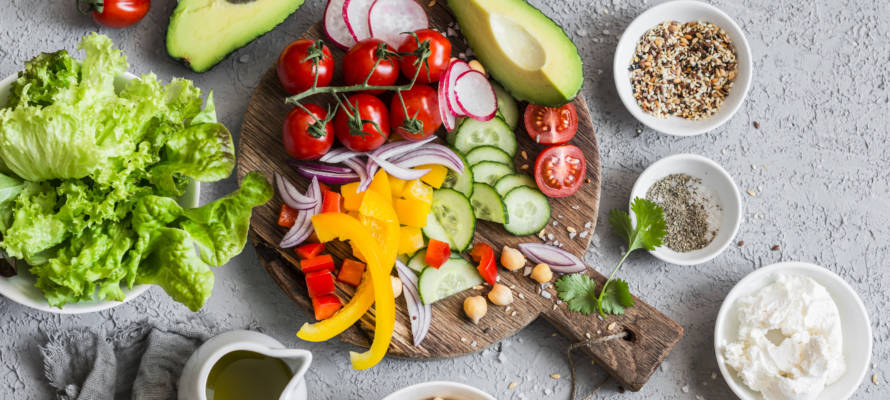Colel Chabad goes the extra mile to ensure that individuals and families not only receive food but also items they will enjoy due to their unique ethnic tastes.
By Tsivya Fox
With nearly one fifth of Israelis living with food insecurity, tens of thousands of people must receive their daily nutrition through soup kitchens, prepaid shopping cards and food packages delivered to their homes. One Israeli based charity organization, Colel Chabad goes the extra mile to ensure that individuals and families not only receive food but also receive items that they will enjoy due to their unique ethnic tastes.
“Every month, Colel Chabad volunteers pack 10,800 food boxes that are delivered throughout Israel to people identified by Israel’s welfare department as in need,” explained Rabbi Menachem Traxler, Director of Volunteering for Colel Chabad, Israel’s longest running charity. “Food is delivered to the hungry, elderly, single parents, Holocaust survivors and those who can’t pay their bills and do not have enough to eat.”

However, providing food which is foreign to the taste buds of certain ethnic groups or cultures might not fulfill the nutritional requirements of the recipients. Though welfare department dieticians provide information for what should go into food packages in order to meet nutritional requirements, Colel Chabad takes into account that Israel is made up of individuals from the miraculous “ingathering of the exiles.” When these immigrants came to the country, so did an influx of cuisines with varied flavors, textures, spices and styles.
“Prior to the founding of the State of Israel in 1948, the Jewish people were dispersed all over the world,” explained Rabbi Shmuel Lipsker, administrator for Colel Chabad. “When the exiled nation returned to their homeland, they brought with them customs and cuisines acquired along their journey.”
Though Israel is often viewed as an advanced “start up nation,” there are 1.8 million citizens living under the poverty line, due, in part, to its constant influx of immigrants. Colel Chabad has been feeding and taking care of the Holy Land’s impoverished residents for over 230 years!
Israel now consists of: Ashkenazi Jews, who generally descend from Germany, northern France, America, England and South Africa; Russian Jews, who are ethnically from Eastern Europe; Mizrahi (Eastern) Jews, who are generally from Spain, Portugal, France, Libya, Lebanon, Iraq, Iran, Morocco and Tunisia; Ethiopian Jews, Indian Jews and more.
As part of Colel Chabad’s Food Security Initiative with Israel’s Ministry of Welfare, the charity organization is doing more than giving food. Recognizing that poverty is difficult in and of itself, Colel Chabad strives to raise the bar on helping those in need by filling their food boxes with food that relates to the recipients ethnicity and culture. By doing so, Colel Chabad provides struggling families and individuals with an extra level of dignity, by respecting their history and culture.
“For those with exotic taste, Israel is a haven for delicious food from all over the world,” continued Rabbi Lipsker. “Some cultures eat more potatoes and pasta while others eat more beans and rice. Colel Chabad is now giving food baskets to match the clientele we are feeding.”
Colel Chabad’s food packing centers are located in 48 municipalities around Israel. The centers are staffed by volunteers in order to save on overhead costs as well as to offer a charitable outlet to those seeking to help those in need.
Packages of dry goods, fresh vegetables, fruits, and housewares, are included in the tens of thousands of boxes delivered to homes all across Israel each month. This new initiative of connecting the delivered food to the recipients taste, is carefully designed to not only ensure that poor families have nutritious food, but that the food is also enjoyed by the recipients based on their specific cultural backgrounds.

The flavors and wide variety of food preferences for Israeli citizens is fascinating. For example, descendants from Middle Eastern countries often enjoy couscous, rice, chickpeas, and eggplant. Yemenites enjoy jachnoon, a pastry baked overnight and fenugreek.
Those of Ashkenazi descent might like stuffed cabbage, caramelized and peppery noodle kugel or cholent – a long cooking stew of meat, beans and barley.
With the influx of Jews from Ethiopia, who have limited or no western education, Colel Chabad helps many of these families survive. “We spoke with the Ethiopian community to clarify which products were most needed so that they would not only have the food they were used to but also find it a bit easier to make Israel their home,” noted Rabbi Lipsker.
Colel Chabad is finding that their carefully designed food packages accomplish something more than feeding the hungry. They help people become more self-sufficient.
“When people realize that they are thought about as valuable and respected individuals, their self confidence and desire to succeed increases,” shared Rabbi Lipsker. “That care and concern brings hope and builds the confidence needed to strive for a better life.”
In addition, Rabbi Traxler noted that these food boxes help many Israelis escape the vicious cycle of poverty. “For those who do not eat properly, it is very difficult to hold a job or study in school. But, with food and a job, one can more easily get out of poverty.”
Colel Chabad helps anyone who comes their way. However, they make special efforts towards normalizing the lives of widows and orphans as well as running a wide range of daycare centers and after-school programs for single and impoverished parents. These unique and outstanding efforts are in recognition that providing quality care now ensures a positive future for the recipients as well as the State of Israel.
“Every day Colel Chabad helps people survive,” shared Rabbi Lipsker. “We know that struggling families skip meals because they cannot afford food. The food we give is literally a life-saver for so many. No family should go hungry.”
To donate to Colel Chabad’s network of social welfare programs, please click here.

